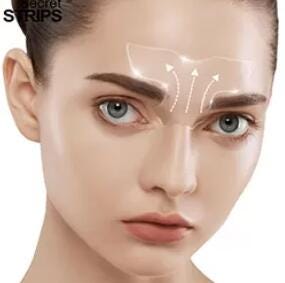Anti-aging face patches are a type of skincare product that has become increasingly popular in recent years. These patches are designed to target specific areas of the face that show signs of aging, such as fine lines, wrinkles, and sagging skin. They are usually made of a thin sheet of material that is infused with various active ingredients that are believed to help improve the skin’s appearance.
One of the most common active ingredients found in anti-aging face patches is hyaluronic acid. Hyaluronic acid is a naturally occurring substance in the body that helps to keep the skin hydrated and plump. As we age, the amount of hyaluronic acid in our skin decreases, leading to dryness, fine lines, and wrinkles. By using an anti-aging face patch that contains hyaluronic acid, the skin is able to absorb this beneficial ingredient and become more hydrated and plump, which can help to reduce the appearance of fine lines and wrinkles.

Another popular ingredient found in anti-aging face patches is collagen. Collagen is a protein that is naturally found in the skin, but its production decreases as we age. By using an anti-aging face patch that contains collagen, the skin is able to absorb this protein and become more firm and elastic, which can help to reduce the appearance of sagging skin and improve overall skin texture.
Vitamin C is another ingredient that is often found in anti-aging face patches. Vitamin C is a powerful antioxidant that can help to protect the skin from damage caused by free radicals, which are unstable molecules that can damage skin cells and accelerate the aging process. By using an anti-aging face patch that contains vitamin C, the skin is able to absorb this powerful antioxidant and become more protected against environmental damage, which can help to improve the overall appearance of the skin.
Anti-aging face patches can come in different shapes and sizes, depending on the area of the face they are designed to target. For example, there are patches that are designed specifically for the under-eye area, which can help to reduce the appearance of dark circles and puffiness. There are also patches that are designed for the forehead, which can help to reduce the appearance of forehead lines and wrinkles. And there are patches that are designed for the cheeks, which can help to improve overall skin texture and firmness.

Using anti-aging face patches is relatively simple. Typically, the patches are applied to clean, dry skin and left on for a specific period of time, usually anywhere from 10 to 30 minutes. During this time, the active ingredients in the patch penetrate the skin and provide their beneficial effects. After the allotted time, the patches are removed and discarded.
It’s important to note that while anti-aging face patches can be a beneficial addition to a skincare routine, they should not be relied upon as the sole means of anti-aging skincare. A comprehensive skincare routine that includes a variety of products and techniques, such as cleansing, exfoliating, and moisturizing, is the best way to keep the skin looking healthy and youthful.
In conclusion, anti-aging face patches are a type of skincare product that can help to reduce the appearance of fine lines, wrinkles, and sagging skin. These patches are typically made of a thin sheet of material that is infused with various active ingredients that are believed to improve the skin’s appearance. While they can be a beneficial addition to a skincare routine, they should not be relied upon as the sole means of anti-aging skincare.



Comments
Please Join Us to post.
0